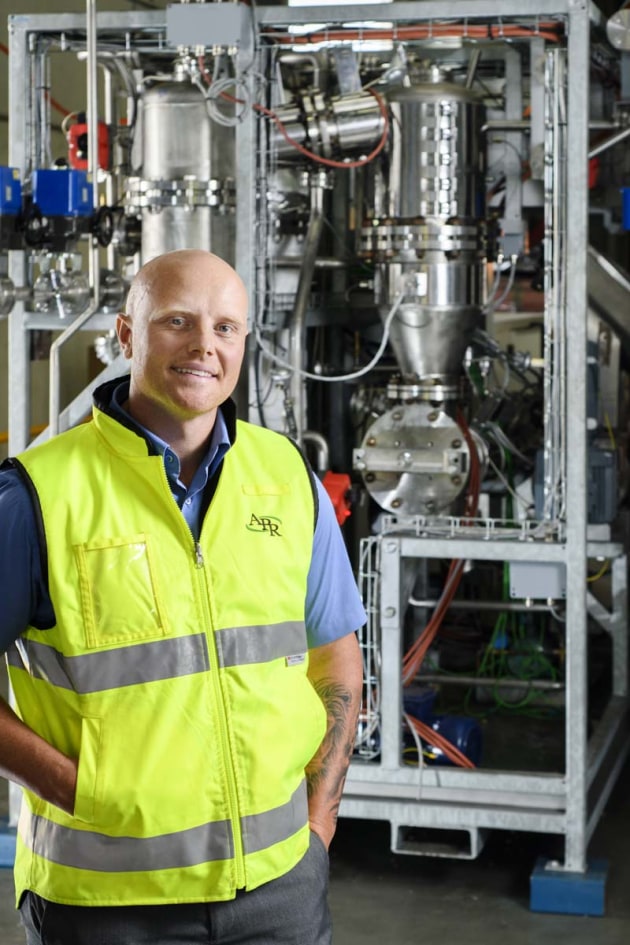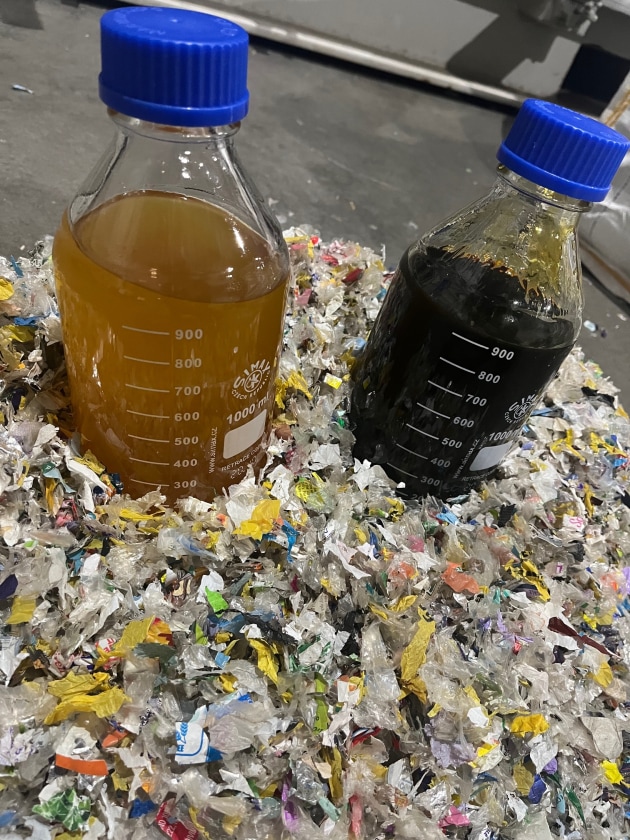Victorian-based APR Plastics, sister company to Australian Paper Recovery and APR Kerbside, is finding success in its trial of running polyethylene and polypropylene through its advanced recycling technology, and transforming plastic waste into oil.
APR Plastics was formed in a bid to address and deliver a long-awaited viable solution for existing soft plastic processing difficulties faced by the recycling industry.
“We’ve had plenty of soft plastics coming through our MRF, which has been running since 2019, and we were looking for ways to capture that waste product and not send it to landfill, as it is a valuable resource in its own right once processed,” Logan Thorpe, special project manager at APR Plastics, told PKN.

Image: APR Plastics
“Through that search, we were introduced to Plastoil, which is the Australian distributor of BioFabrik’s advanced recycling technology.”
Just this year, the Dandenong South advanced recycling company became the first in Australia to receive and operate BioFabrik’s pyrolysis WASTX machine, which is designed to turn 100 per cent of soft plastic in either oil, gas or asphalt material.
“It has been a challenging process and there has been a lot of work, from that first introduction to today, to work it all out and do our research, but now we are finally at a point where we have this technology on hand and are conducting trials to repurpose hard-to-recycle plastics,” adds Thorpe.
The modular WASTX pyrolysis plant enables waste plastics to be broken down back into its original state, and allows the company to process one tonne of waste plastics per day. APR Plastics currently receives 800 tonnes of plastic per month.
This process allows it to be repurposed into oil, for use in plastic manufacturing and energy; gas, to be distributed into the hybrid generator for self-sufficiency; and carbon ash, which is produced from any residues on the plastic in feed, generally in low percentages.
In terms of energy, the generated gases from the pyrolysis process can be utilised on-site into a hybrid generator to produce energy, which can run the plant by utilising one-sixth of the 1000kgs of plastic processed.
As for how it works, first, the plastic waste is shredded so it can be consistently fed into the process. Then, a uniquely designed corkscrew conveyor transports the plastic waste into the reactor and breaks it down, splitting the materials at high temperatures.
The pyrolysis process shortens the long hydrocarbon chains of the plastic and creates an oil vapour, which then flows into the subsequent condensation stages, where it becomes liquid again.
“WASTX is a fully sealed, continuous advanced recycling system that can be operated on a 24-hour basis and process polyolefin plastics, which is polyethylene and polypropylene, so that will really help us to tackle those hard-to-recycle soft plastics,” he explained.
“This is going to allow us to take a food-grade plastic that is currently going to landfill, and reprocess that back into new food-grade plastics. That’s what we are trying to achieve with this whole project.
“From here, we would really like to upscale the process to really have a dramatic impact on the formation of a circular economy, and we are taking a full collaboration approach for this, and it will need the entire supply chain to be involved in the process.”
Currently, the trial is set to continue until the end of the year. APR Plastics also aims to have a commercial machine with the capability to process five-times (5000kgs) the current machine per day, and that machine is set to run 24/7.

Image: APR Plastics






